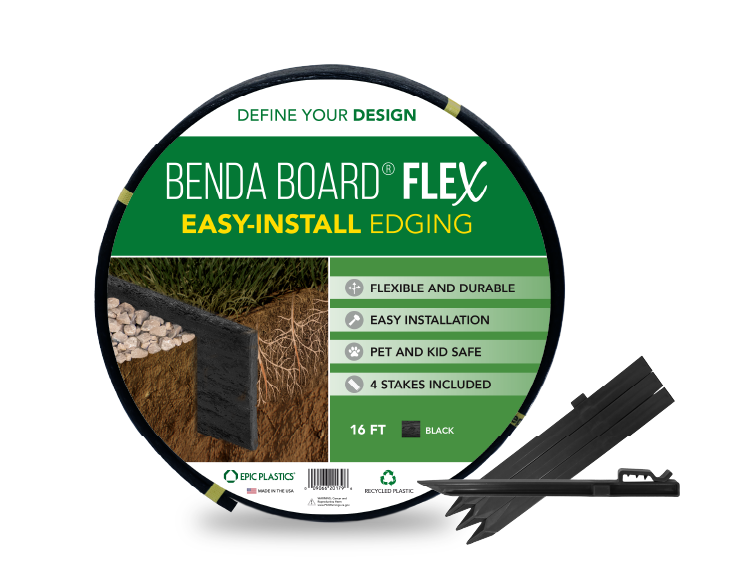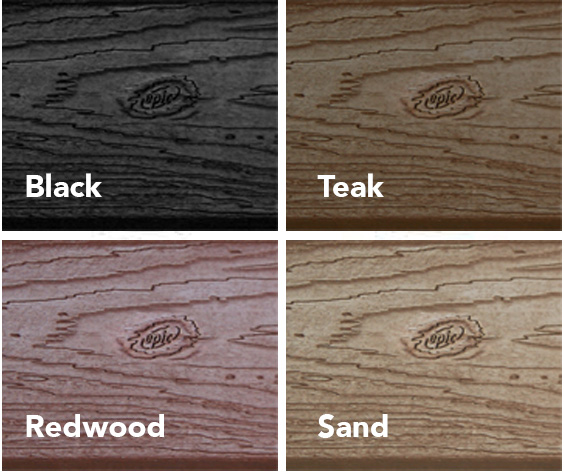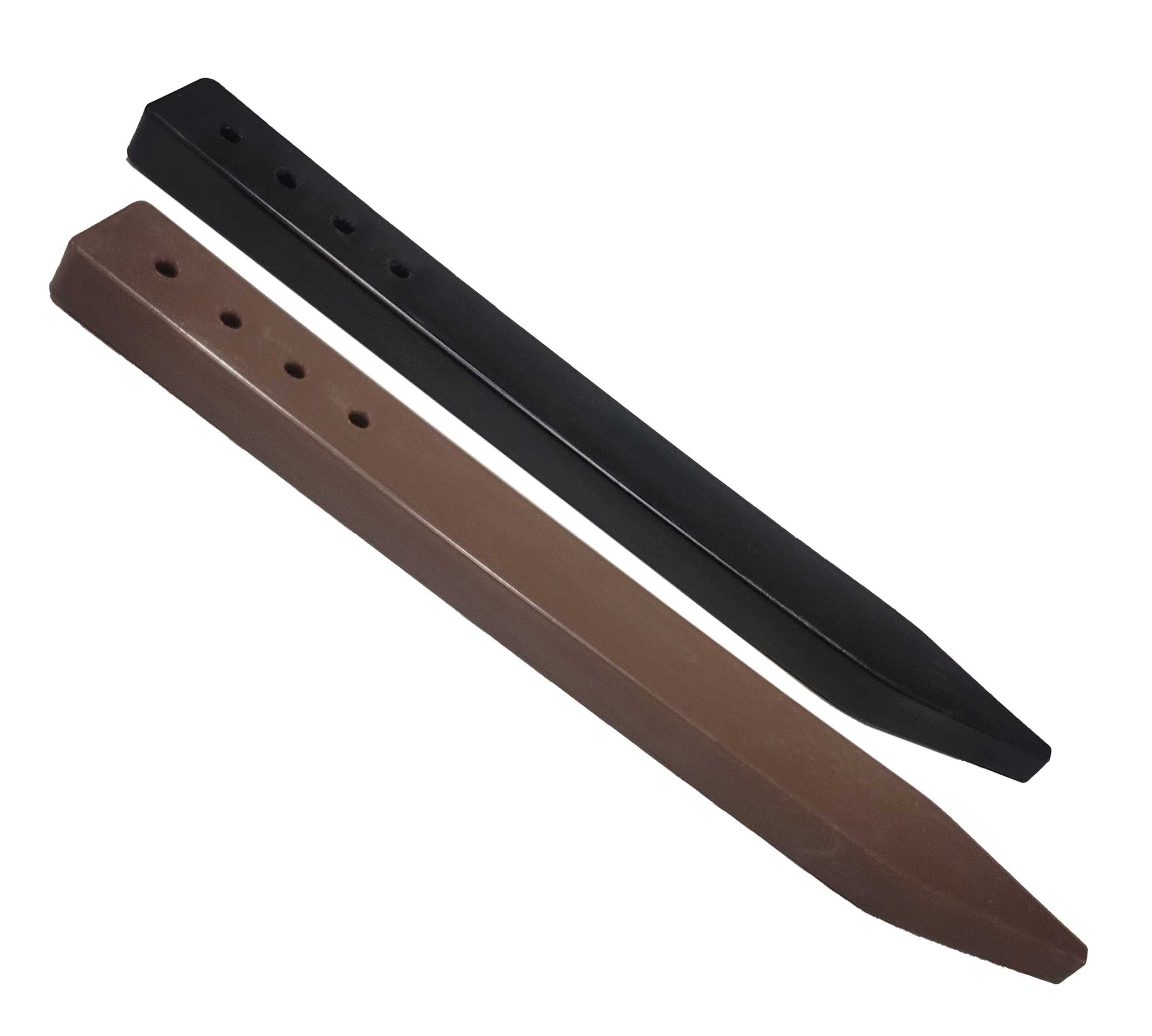(800) 621-5381
Plastic Landscape Edging
Plastic Landscape Edging (Benda Board®): A Practical Guide
Benda Board® by Epic Plastics is recycled-plastic landscape edging that bends for smooth curves and holds crisp straight lines without the rot and splinters of wood. Below you’ll find plain-English specs, planning tips, a quick install workflow, and a short case study.
At-a-glance: Recycled HDPE; slip-joint connection; compatible stakes; colors: Black, Teak, Redwood, Sand. Ideal for beds, paths, mow strips, and artificial turf edges.

Why Choose Benda Board® Plastic Landscape Edging?
- Durable & low-maintenance: Recycled plastic won’t rot or splinter and resists moisture and soil contact.
- Flexible but stable: Forms organic curves yet holds straight runs when staked correctly.
- Cleaner installs: Slip-joint with hairpins keeps lines tidy; compatible stakes keep everything in plane.
- Color options: Black, Teak, Redwood, Sand for natural-looking borders.

Planning, Coverage & Materials
- Board sizes: Typical heights 3.3–6 in; lengths 12–20 ft. Match height to mulch/rock depth and desired reveal.
- Stakes & hairpins: Use Epic Plastics’ stakes; hairpins form the slip-joint and allow thermal movement.
- Color selection: Choose to complement hardscape or turf; darker colors hide soil stains better.
Quick Takeoff Tip
Linear feet of edging ≈ total run length. Add 5–10% for overlaps, joints, and tight radius work.

Field-Simple Installation (Step by Step)
- Layout: Mark curves with a hose/rope; dig a trench about 3 in deep.
- Stake spacing: Drive stakes every 4–5 ft; tighten spacing for tight curves or soft soil.
- Set the board: Press Benda Board into stake clips; keep exposure ≤ 3/4 in to control expansion.
- Slip-joint: Join boards with hairpins (leave a small gap), then backfill and compact both sides.
Case Study: Water-Wise Front Yard With Curved Bed Edging
Project: A homeowner wanted smooth curves around drought-tolerant plantings and a decomposed-granite path—without the maintenance of wood edging.
Approach: The crew used Benda Board in Black to define beds and the DG walkway. Stakes were placed every ~4 ft with hairpins at joints. Exposure stayed under 3/4 in to control thermal movement.
- Install time: One day with a two-person crew; minimal cutting even on tight curves.
- Finish quality: Straight lines along the driveway; consistent curves around boulders and shrubs.
- Maintenance: After a season, edges stayed true; no rot or splintering.
Specs (At-a-Glance) & FAQs
- Material: Recycled HDPE plastic (durable, flexible, weather-resistant).
- Connection: Slip-joint with hairpins; compatible stakes and screws available.
- Colors: Black, Teak, Redwood, Sand.
- Uses: Bed borders, mow strips, paths, turf perimeters, light concrete form boards.
Will Benda Board hold a straight line?
Yes—when installed with correct stake spacing and low exposure, it holds straight runs and neat corners.
How deep should I set it?
Keep exposure to 3/4 in or less and bury the rest; this controls expansion and keeps edges crisp.
How far apart should stakes be?
Every 4–5 ft in typical soil; tighten spacing for tight curves or soft ground.






